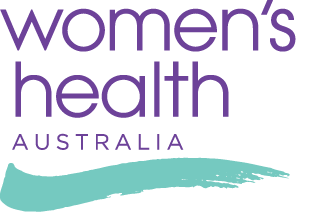Important considerations
Please consider the following before applying for linked health record data.
 Scope and content of collections
Scope and content of collections
Before applying for linked data, you should familiarise yourself with the scope, content and context of each collection. Please note that ALSWH only receives a selection of variables from any given record collection. See ALSWH linked data pages, and the ALSWH Linked Data Variable Request Form for more information. Additional resources will also be provided to investigators along with the linked datasets.
New collections:
From mid-2022, you can also request survey and linked child education data (NAPLAN and AEDC) from the Mothers and their Children’s Health (MatCH) Substudy.
 Time-constraints
Time-constraints
Linked data will not be immediately available to new users. After approval of your project by the ALSWH Data Access Committee, you will need to complete additional documentation, which will be submitted to Human Research Ethics Committees (HRECs) and Data Custodians by ALSWH on your behalf. Depending on the number and sources of linked datasets requested, this process may involve multiple steps, and can take several months (particularly for state-based collections). While we make every effort to expedite access, it is outside of ALSWH control. We are currently experiencing some additional delays due to the prioritisation of COVID-19 data needs by data custodians, data linkage units and ethics committees.
 Access to linked data
Access to linked data
Due to the complex nature of linked data, and ALSWH’s responsibilities to the data custodians:
- An ALSWH Project Liaison must be included in the project as a collaborator, and as an author on any publications.
- Only one new external (non-ALSWH) linked data user can be added on any EoI, unless a student will be undertaking the analysis, in which case, the supervisor should also be nominated.
Linked data for approved projects can only be accessed and analysed:
- At ALSWH sites: The University of Queensland or The University of Newcastle. Visits must be booked; access depends on the facilities and resources available.
- Remotely through the SURE facility; researchers are responsible for fees and must organise access through their own institution. Note: SURE workspace should be named with the ALSWH project ID, for example ‘ALSWHXXXX’.
 Opt-outs
Opt-outs
ALSWH participants may opt out of health record linkage at any time, and will no longer be included in lists sent to Data Linkage Units for matching. When you access linked datasets, you will receive a file including all ALSWH participants, indicating their opt-out status at that time. When you conduct your analysis it is important to consider why a woman’s data do not appear in the linked dataset, and the potential for under representation.
 Sensitive variables
Sensitive variables
Certain variables, for example, geographic variables (such as Statistical Local Area, Health Service District, and postcode) are more sensitive, and there are additional restrictions around their use. If you wish to include sensitive variables in your project, they must be adequately justified in your EoI. Before being integrated with your project dataset, they must be coded or categorised, and sufficiently aggregated, to minimise risks to participant privacy.
Alternatively, ALSWH routinely supplies commonly-used geographic variables derived from participant geo-codes (e.g. ARIA+, SEIFA) which are sufficient for most analyses.
 Chronic Conditions datasets from Multiple Sources (CCMS)
Chronic Conditions datasets from Multiple Sources (CCMS)
To streamline your analyses, ALSWH has developed some derived datasets to share. These datasets identify the following common chronic health conditions: Cancer, Dementia, Diabetes, Ischaemic Heart Disease, Mental health, Musculoskeletal, Respiratory, and Stroke; using all available sources (surveys and linked health records).
The task of harmonising the numerous sources, and ascertaining relevant diagnoses, has already been done, and the methods documented (the methodology is built on work conducted for a recent ALSWH report).
CCMS datasets may be sufficient for many analyses, rather than using the source data. (However, you may also request the source collections, if you wish to include other aspects of health service use in your analyses).
Data access requirements are the same as for as for the source collections.
 Publication and acknowledgement
Publication and acknowledgement
Details of the official collection names and the organisations involved in data linkage are listed on the ALSWH linked data acknowledgements page.
Specific acknowledgement text to be included in publications arising from linked data is also provided for collaborating researchers.
For some collections, you must submit your manuscript or other output to data custodians for pre-publication review.
 ALSWH data linkage program approvals
ALSWH data linkage program approvals
ALSWH has approval to conduct health record linkage from its Institutional Human Research Ethics Committees (HRECs), and from the responsible HRECs and data custodians in every jurisdiction.

